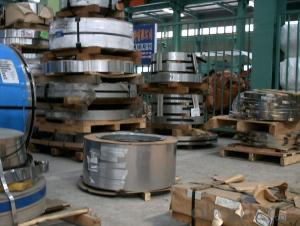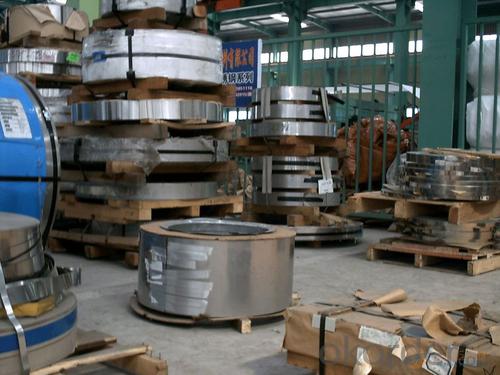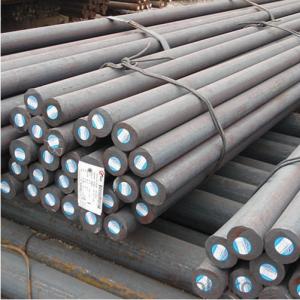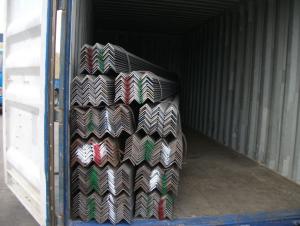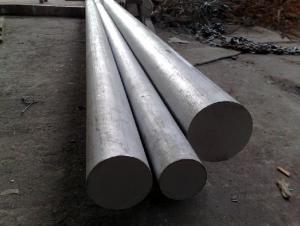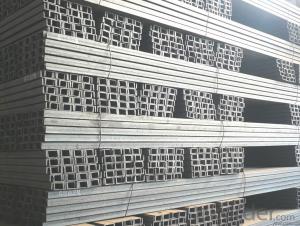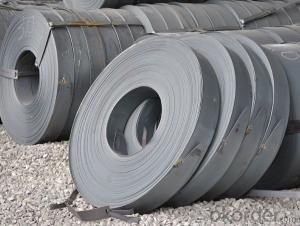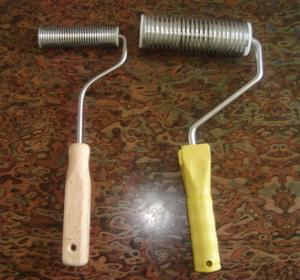Bulk rolled galvanized spring steel with grade A quality
- Loading Port:
- Tianjin
- Payment Terms:
- TT or LC
- Min Order Qty:
- 34 m.t.
- Supply Capability:
- 35000 m.t./month
OKorder Service Pledge
Quality Product, Order Online Tracking, Timely Delivery
OKorder Financial Service
Credit Rating, Credit Services, Credit Purchasing
You Might Also Like
Specifications
A.Size:9/10/12.5/14/16/19/25mm(wide)
B.Function:for handtools
C.Material:65M
D.Anti-rust
Quick Details
| Place of Origin: | Tianjin China (Mainland) | Brand Name: | HX | Model Number: | 65 |
| Style: | Flat;Leaf;Plate | Load Type: | Compression | Material: | Steel |
| Usage: | Industrial | Strength: | ingenuous structure with good obdurability | Color: | By customer |
| Matertial: | 65Mn | Width: | 9/10/12.5/14/16/19/25mm(wide) | Lengh: | Endless |
| Thickness: | 0.36-1.2mm | Using scope: | Tape measure and so on | Design: | spring steel for springs |
| Attributes: | Anti-rust | Firmness: | Best |
Packaging & Delivery
| Packaging Detail: | spring steel for springs 1pcs/roll,10pcs/paper wrap,500pcs/carton |
| Delivery Detail: | 15~25days |
Specifications
spring steel for springs
A.Size:9/10/12.5/14/16/19/25mm(wide)
B.Function:for handtools
C.Material:65M
D.Anti-rust
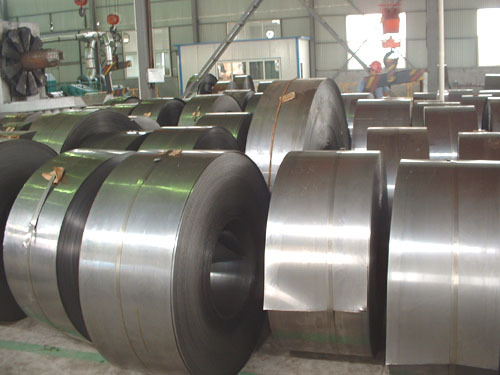
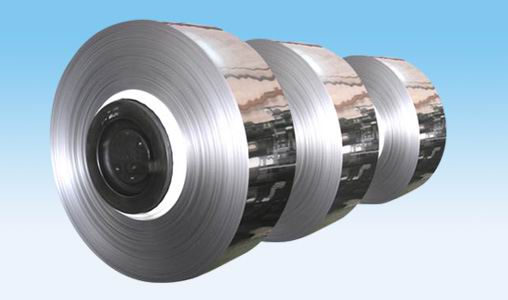
- Q: What are the different powder coating techniques used for special steel?
- There are several powder coating techniques used for special steel, including electrostatic spray, fluidized bed, and flame spraying. Each technique offers unique advantages and is chosen based on factors such as the desired coating thickness, complexity of the surface, and specific properties required for the steel's functionality.
- Q: How does special steel contribute to the agricultural sector?
- Special steel contributes to the agricultural sector by providing durable and high-quality materials for various agricultural machinery and equipment. It enhances the performance and longevity of farming tools like plows, harrows, and combine harvesters, making them more resistant to wear and tear. Special steel also supports the construction of storage facilities, irrigation systems, and infrastructure in agriculture, ensuring improved efficiency and productivity in the sector.
- Q: How does special steel perform under high temperatures?
- Special steel, also known as high-temperature steel, exhibits excellent performance under high temperatures. It maintains its strength, hardness, and resistance to deformation, making it suitable for various applications in extreme heat conditions. Additionally, special steel can withstand thermal stress and oxidation, ensuring its durability and reliability in high-temperature environments.
- Q: Can special steel be used in automotive engine components?
- Automotive engine components can indeed benefit from the utilization of special steel. Also referred to as alloy steel, special steel possesses enhanced properties, including increased strength, toughness, and heat resistance. These attributes make it highly suitable for the utilization in critical engine components that endure high temperatures, stress, and wear. Within the realm of automotive engines, special steel finds application in an array of components, such as crankshafts, camshafts, connecting rods, valves, and piston rings. These components encounter extreme conditions, including elevated temperatures, pressure, and rotational forces. Special steel confers the necessary strength and durability to withstand these conditions, consequently ensuring dependable engine performance and longevity. The incorporation of special steel within automotive engine components yields several advantages. Firstly, it heightens the strength and load-carrying capacity of the components, enabling them to handle greater power and torque outputs. Secondly, special steel bolsters the fatigue resistance and durability of the components, thereby diminishing the likelihood of failure and prolonging their service life. Lastly, special steel exhibits the ability to endure the high temperatures and thermal cycling experienced within the engine, thereby averting deformation and upholding dimensional stability. On the whole, the utilization of special steel in automotive engine components assumes paramount importance in the pursuit of attaining optimal performance, reliability, and longevity. It guarantees that the engine can endure the demanding conditions under which it operates, ultimately granting a smoother and more efficient driving experience.
- Q: How does special steel contribute to reducing product weight?
- Special steel contributes to reducing product weight through its unique properties. Special steel is known for its high strength-to-weight ratio, which means it can provide the same level of strength and durability as other materials while being significantly lighter. By using special steel in the manufacturing process, products can be designed with thinner and lighter components without compromising their structural integrity. This reduction in weight not only makes the product more portable and easier to handle, but it also helps in reducing transportation costs and improving fuel efficiency in industries such as automotive and aerospace.
- Q: How does special steel contribute to weight reduction in manufacturing?
- Special steel contributes to weight reduction in manufacturing through its unique properties and characteristics. Special steels are designed to have high strength-to-weight ratios, allowing manufacturers to use less material while still achieving the desired strength and performance. This results in lighter and more efficient products without compromising their structural integrity. Additionally, special steels can be processed into complex shapes, enabling the production of intricate components that are both lightweight and strong. Overall, the use of special steel in manufacturing helps reduce the overall weight of products, leading to improved fuel efficiency, lower transportation costs, and increased sustainability.
- Q: How is special steel used in the manufacturing of tools and dies?
- Special steel is used in the manufacturing of tools and dies due to its exceptional properties, such as high strength, hardness, and wear resistance. These steels can withstand extreme temperatures and pressures during the forming, cutting, and shaping processes. They also have excellent dimensional stability, ensuring precise and accurate tooling. Special steel's unique composition and heat treatment capabilities allow for the production of durable and long-lasting tools and dies, which are essential for various industries like automotive, aerospace, and manufacturing.
- Q: What are the main characteristics of tool steel?
- Tool steel is a type of steel that possesses several key characteristics, including high hardness, wear resistance, toughness, and heat resistance. It is specifically designed to be used in the production of tools and dies, where it needs to withstand intense pressure, abrasion, and high temperatures. Additionally, tool steel has the ability to retain its shape and sharpness even under heavy use, making it highly durable and reliable for various industrial applications.
- Q: What are the different non-destructive testing techniques used for special steel?
- There are several non-destructive testing (NDT) techniques that are commonly used for special steel to ensure its quality and integrity without causing any damage. These techniques are essential in industries where special steel is used, such as aerospace, automotive, and construction, to ensure that the material meets the required specifications and standards. Some of the commonly used NDT techniques for special steel are: 1. Ultrasonic Testing (UT): This technique involves the use of high-frequency sound waves to detect internal flaws, such as cracks, voids, or inclusions, in special steel. UT is highly effective in detecting subsurface defects and is widely used due to its versatility and accuracy. 2. Magnetic Particle Testing (MT): MT is a technique that uses magnetic fields and iron particles to detect surface or near-surface defects in special steel. It is particularly useful in identifying defects like cracks, seams, or laps, as the magnetic particles will accumulate at these locations, making them visible under proper lighting conditions. 3. Liquid Penetrant Testing (PT): PT is a widely-used method for detecting surface defects in special steel. It involves applying a liquid penetrant to the surface of the material, which seeps into any surface cracks or defects. After a specified time, the excess penetrant is removed, and a developer is applied to make the defects visible. 4. Eddy Current Testing (ET): ET utilizes electromagnetic induction to detect surface or near-surface defects in special steel. It is particularly useful in detecting cracks, corrosion, or metal loss in conductive materials. ET is a fast and accurate method, making it suitable for high-speed production environments. 5. Radiographic Testing (RT): RT involves the use of X-rays or gamma rays to examine the internal structure of special steel. It can detect various defects, including porosity, inclusions, and cracks. RT provides detailed images that help identify the location, size, and severity of defects. 6. Visual Testing (VT): VT is a simple yet crucial technique that involves a visual examination of the surface of special steel. It helps identify surface defects like scratches, dents, or corrosion. Although VT is not as sensitive as other NDT techniques, it is often used as a preliminary inspection method. Each of these non-destructive testing techniques has its own advantages and limitations. The selection of the appropriate technique depends on factors such as the type and size of the special steel, the required inspection depth, and the specific defects that need to be detected. By using a combination of these techniques, manufacturers and inspectors can ensure the quality and reliability of special steel products.
- Q: How does special steel compare to other materials such as aluminum or titanium?
- Special steel, when compared to other materials such as aluminum or titanium, offers a unique set of advantages and characteristics. Firstly, special steel is known for its exceptional strength and durability. It has a higher tensile strength compared to aluminum and titanium, making it ideal for applications that require withstanding heavy loads or high-stress environments. This strength also provides resistance against wear and tear, ensuring a longer lifespan of the material. Another significant advantage of special steel is its ability to maintain its mechanical properties at extreme temperatures. While aluminum and titanium may experience a significant decrease in strength at elevated temperatures, special steel retains its structural integrity, making it suitable for applications that involve high temperatures or thermal cycling. In terms of cost-effectiveness, special steel often proves to be more affordable than titanium, especially in large-scale production. Although aluminum is generally cheaper than special steel, it may not possess the same level of strength or resistance to corrosion, which could limit its applicability in certain industries. Moreover, special steel has excellent machinability and can be easily formed into different shapes and sizes, allowing for greater design flexibility. This quality makes it suitable for various industries such as automotive, aerospace, construction, and manufacturing, where complex components or structures are required. Lastly, special steel exhibits superior corrosion resistance compared to aluminum and titanium. It can be treated or coated to provide additional protection against rust and other forms of degradation, extending its lifespan even further. In summary, special steel outperforms aluminum and titanium in terms of strength, durability, temperature resistance, and corrosion resistance. Its cost-effectiveness, machinability, and versatility make it a preferred material in various industries, where high-performance and reliability are crucial factors.
Send your message to us
Bulk rolled galvanized spring steel with grade A quality
- Loading Port:
- Tianjin
- Payment Terms:
- TT or LC
- Min Order Qty:
- 34 m.t.
- Supply Capability:
- 35000 m.t./month
OKorder Service Pledge
Quality Product, Order Online Tracking, Timely Delivery
OKorder Financial Service
Credit Rating, Credit Services, Credit Purchasing
Similar products
Hot products
Hot Searches
Related keywords
